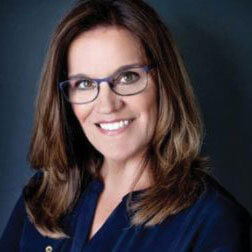This summer, the pressures placed on nurses in Ontario reached a boiling point with ER closures in communities across the province. Our Minister of Health was shockingly out of touch, saying the closing of ERs was “not unprecedented,” especially during “vacation time”—completely ignoring the fact that vacations did not cause the shortage but are actual part of normal staffing pattern. Meanwhile, our Premier suggested that nine out of 10 high-urgency patients were receiving care within targeted times—and that was an acceptable standard of care.
We disagreed. You disagreed. Patients disagreed.
In fact, in this issue, we share the story of one patient, Steven Cedrone, who forwarded a letter to WeRPN that he wrote to the Premier about his experiences when admitted for a spinal cord injury. During his lengthy stay, staff shortages meant he had to wait 40 minutes for calls to be answered (imagine waiting 40 minutes for a bedpan) as nurses ran around frantically trying to hold everything together as best they could.
Although the attention has been on ER closures, the strain on nurses is not only an acute care problem. It’s everywhere. Imagine the horrors Steven experienced, like waiting over 40 minutes for a nurse to come with a bedpan. What does that look like multiplied by 10 in a long-term care facility? This is where programs like our BEGIN program provide a start to address the issues—by getting more skilled RPNs in the facilities that so desperately need them. But it doesn’t address the underlying problem that RPNs—all nurses—need to be compensated fairly and have solid, fully staffed working environments. We need to return to the well researched and proven standards of care that made Ontarians feel safe—and made nurses feel proud.
This ongoing advocacy work by the WeRPN team—including our research study: The State of Nursing in Ontario: A 2022 Review—has brought your experiences to the forefront. Every major media outlet has picked up and repeatedly cited the statistics highlighted in this study. And not one has questioned the validity of your experience—or whether recent closures were about nurses asking for an unfair wage.
The fact that one in two nurses is considering leaving the profession is universally devastating. I’ve been motivated by the degree to which the media and the general public get that nurses aren’t a replaceable group of people.
My goal is to ensure that the provincial government agrees and takes all the recommended actions we’ve outlined in our research study. This may take time, but with the public on our side, our voice will be heard.
Because when the premier of our province goes on record saying that nine out of 10 patients are receiving appropriate care within our health parameters—and that’s just fine—we need the public to understand that this is NOT our measuring stick.
Nine out of 10 babies being born safely would never be acceptable. Nine out of 10 people in long-term care homes getting fed each day would never be acceptable. Nine out of 10 people getting bedpans and not having to soil their beds is beds is similarly not acceptable.
So one of our calls to action is to keep urging the public to inquire about the level of care they’re receiving. They need to ask, will there be the normal number of nurses? Not “enough” nurses, but the normal number of nurses they are supposed to have on this unit on any given shift. Because that is what we know is the safest and most ideal number.
The government has been getting away with normalizing that there are “enough” nurses on staff for too long. And with the public’s help, we’ll ensure that stops. We need to return to a normal standard of care for patients and a normal standard of treatment for nurses in this province. We’ve had enough.

Dianne Martin, RPN
CEO, WeRPN

